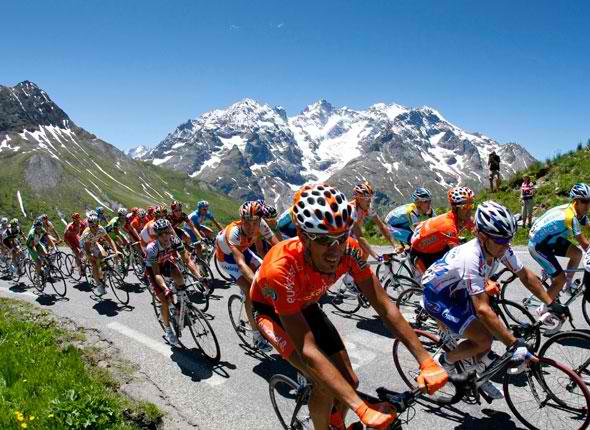
The Sunday Journal of April 13, 2014 reveals that the drastic regimes also concern top athletes, such as those evolving in cycling.
Thus the British team Sky Team “benefits” from the nutritional advice of Nigel Mitchell. He prides himself in The Guardian for being “responsible for everything that enters the mouths of runners”. We learn that this sorcerer’s apprentice provides cyclists with high-dose proteins from breakfast in the form of porridge and omelette, and large quantities of milk at bedtime. Agave syrup replaces sucrose, we take 2 grams of fish oil for omega 3 and anti inflammatory properties. We drink fruit juices and eat vegetables to hydrate.
We can remove the fibers so fruit juices, vegetables and fruits if we are trying to lose weight in order to lighten the digestive tract and we recommend deprivations in particular on fats.
In short, nothing new and always the recipes of magazines applied to quickly melt a diet that leads to surprising variations in weight from one season to another, for example with Bradley Wiggins and Christopher Froome who had flown over the last Tour de France .
For Bradley Wiggins, a kilogram of weight is 30 seconds lost at the top of a hill. Wiggins weighed 86 kilos during his first tour of France in 2006, he finished 124th, in July 2012, he was 71 kilos and finished first. What give him reason! But, he took it all again the following winter (12 kilos) and lost everything again for the Tour of Italy in 2013. Now, he is 3 to 4 kilos more than in summer 2012. This is the famous ascending yoyo which begins.
The other competing cycling groups question the merits of the British training which aims at a surrealist weight to be achieved more than in form with unsavory methods which resemble those of a certain Dr Dukan.
What I’m wondering about are these champions that we are training today. But we are not concerned about their future, including medical, which may be damaged. Is it worth it to make such a sacrifice for a charm to hang at home.